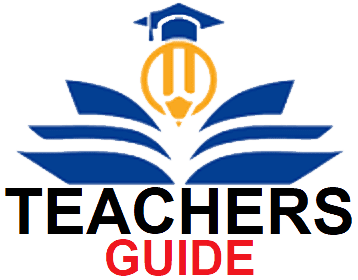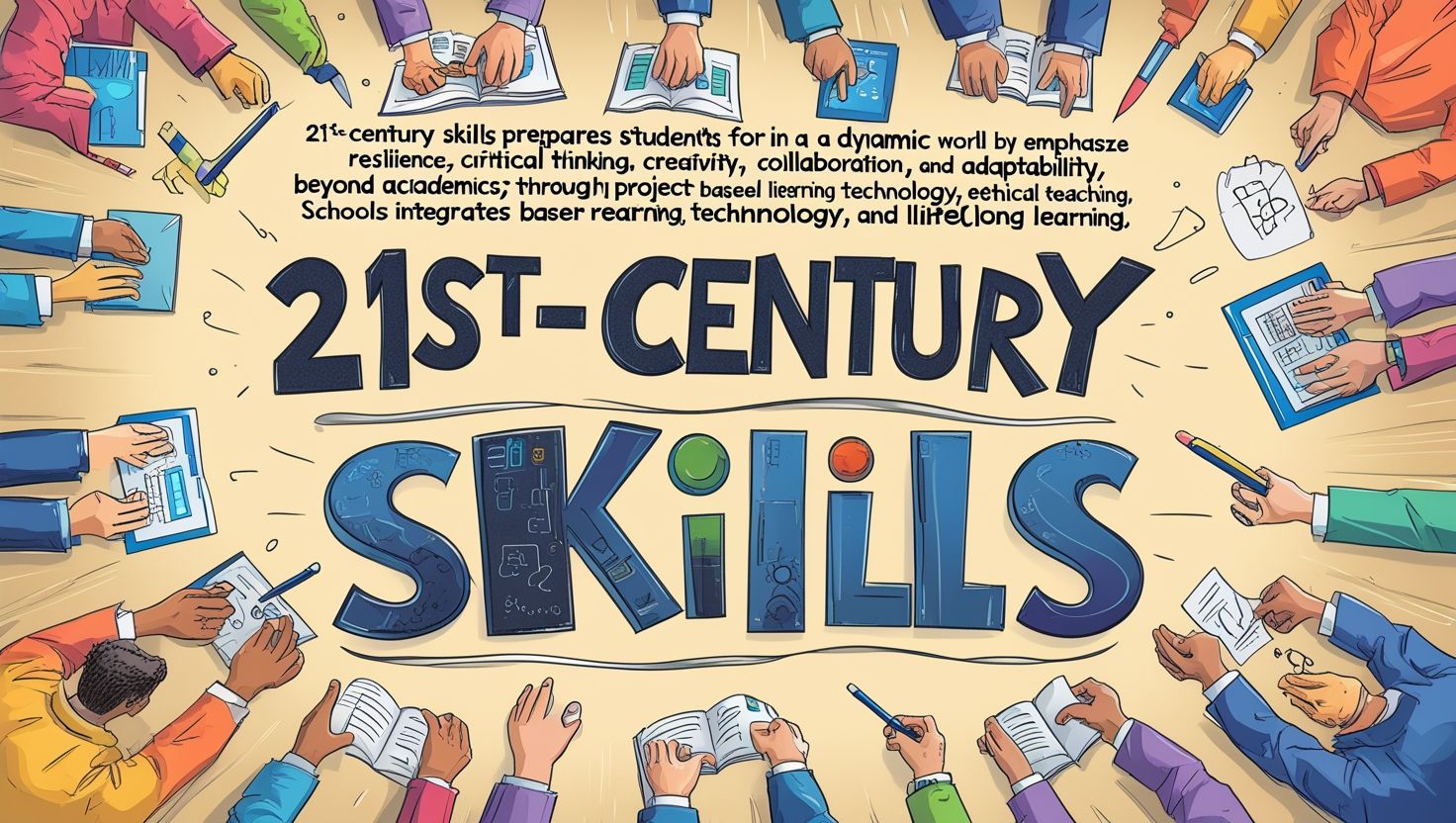Introduction
The 21st century is characterized by rapid technological advancements, globalization, and profound societal shifts. In response to these changes, traditional education models are evolving to equip students with the competencies needed to thrive in an increasingly complex and interconnected world. The concept of 21st-century skills has emerged as a critical framework, emphasizing a holistic approach to learning that extends beyond academic knowledge. This essay explores the importance of 21st-century skills, their key components, and their transformative impact on students’ personal, academic, and professional development.
Defining 21st Century Skills
The Evolving Educational Landscape
The 21st-century skills framework moves beyond rote memorization and standardized testing, recognizing that success in today’s world requires adaptability, critical thinking, collaboration, and technological literacy. Education must prepare students not just for exams, but for real-world challenges.
Key Components of 21st Century Skills
- Critical Thinking and Problem Solving
- Students must analyze information, think critically, and develop innovative solutions to complex problems.
- Encourages creativity, curiosity, and systematic reasoning.
- Communication and Collaboration
- Effective communication (both verbal and written) is essential.
- Students learn to work in teams, listen actively, and engage with diverse perspectives.
- Creativity and Innovation
- Encourages original thinking, experimentation, and risk-taking.
- Prepares students to develop new ideas and solutions in an ever-changing world.
- Information Literacy
- In an era of information overload, students must evaluate sources, discern credible information, and synthesize knowledge.
- Technological Literacy
- Digital competence is crucial for modern careers.
- Students must use technology effectively, adapt to new tools, and leverage digital platforms for learning.
- Flexibility and Adaptability
- The ability to embrace change, learn new skills, and adjust to shifting environments is vital.
- Cultural Competence
- As globalization increases, students must appreciate diversity, understand different cultures, and engage in cross-cultural communication.
- Ethical Leadership
- Encourages social responsibility, integrity, and ethical decision-making.
- Prepares students to be principled leaders in their communities and professions.

The Transformative Impact of 21st Century Skills
Personal Development
- Holistic Growth: Develops emotional intelligence, resilience, and ethical awareness alongside academic skills.
- Resilience and Grit: Teaches students to persevere through challenges and learn from failures.
- Intrinsic Motivation: Connects learning to real-world applications, fostering self-driven curiosity and engagement.
Academic Excellence
- Deep Learning: Shifts focus from memorization to conceptual understanding and application.
- Interdisciplinary Learning: Encourages students to connect knowledge across subjects for a broader perspective.
- Project-Based Learning (PBL): Engages students in real-world problem-solving, enhancing creativity and teamwork.
Professional Preparation
- Career Readiness: Employers seek candidates with critical thinking, adaptability, and collaboration skills.
- Entrepreneurial Mindset: Encourages initiative, innovation, and problem-solving—key traits for future leaders.
- Lifelong Learning: Equips students with the ability to continuously upskill in a fast-changing job market.
Strategies for Incorporating 21st Century Skills in Schools
- Curricular Integration
- Embed skills like critical thinking and collaboration into lesson plans.
- Project-Based and Experiential Learning
- Hands-on projects and real-world simulations enhance practical application of knowledge.
- Technology Integration
- Use digital tools, coding, and online collaboration platforms to boost tech literacy.
- Professional Development for Educators
- Train teachers in innovative pedagogies, technology use, and interdisciplinary teaching methods.
- Alternative Assessment Methods
- Move beyond traditional exams by using portfolios, presentations, and group projects to evaluate skills.
- Cultivating a Growth Mindset
- Encourage students to embrace challenges and view failures as learning opportunities.
Overcoming Implementation Challenges
- Resistance to Change: Schools must demonstrate the benefits of 21st-century skills and provide teacher support.
- Resource Constraints: Leverage community partnerships, grants, and cost-effective digital tools.
- Assessment Alignment: Develop new evaluation methods that measure creativity, collaboration, and problem-solving.

Global Perspectives on 21st Century Skills
- International Frameworks: Initiatives like the Partnership for 21st Century Skills (P21) and the European Framework for Key Competences highlight global recognition of these skills.
- Global Competitiveness: Nations prioritizing 21st-century education produce adaptable, innovative workforces, enhancing economic growth.
Conclusion
The integration of 21st-century skills in education marks a paradigm shift—from content-focused learning to holistic, skill-based development. By fostering critical thinking, creativity, collaboration, and adaptability, schools prepare students not just for exams, but for life. As educators and policymakers embrace this approach, they lay the foundation for a future-ready generation capable of driving innovation, ethical leadership, and global progress. The ultimate goal is an education system that nurtures lifelong learners equipped to thrive in an ever-evolving world.


Can you be more specific about the content of your article? After reading it, I still have some doubts. Hope you can help me.
Your article helped me a lot, is there any more related content? Thanks!
priligy usa Use of ACCUPRIL with a thiazide diuretic gives a blood pressure lowering effect greater than that seen with either agent alone
Most breast cancers are invasive ductal carcinomas the cancer begins in the milk ducts of the breast cytotec order Most other antibiotics won t cause this side effect
Your article helped me a lot, is there any more related content? Thanks!
Your article helped me a lot, is there any more related content? Thanks!
Thank you for your sharing. I am worried that I lack creative ideas. It is your article that makes me full of hope. Thank you. But, I have a question, can you help me?
pattimura4d
Küçükçekmece su kaçağı tespiti Su kaçağı derdinden kurtuldum, hepsi bu ekibin sayesinde! https://www.aaccoaching.uk/read-blog/10705
Hüseyinli su kaçak tespiti Bakırköy’deki işyerimdeki su kaçağını bulmak kolay olmamıştı ama ekip çok profesyoneldi. https://www.bideew.com/read-blog/9560
Hello my friend! I want to say that this post is awesome, nice written and include almost all vital infos. I would like to see more posts like this.
In these days of austerity plus relative stress and anxiety about running into debt, many individuals balk about the idea of making use of a credit card in order to make purchase of merchandise as well as pay for a holiday, preferring, instead to rely on a tried in addition to trusted technique of making repayment – hard cash. However, in case you have the cash on hand to make the purchase fully, then, paradoxically, this is the best time just to be able to use the credit cards for several causes.
I was curious if you ever considered changing the structure of your blog? Its very well written; I love what youve got to say. But maybe you could a little more in the way of content so people could connect with it better. Youve got an awful lot of text for only having one or 2 pictures. Maybe you could space it out better?
Good ? I should certainly pronounce, impressed with your website. I had no trouble navigating through all tabs as well as related information ended up being truly simple to do to access. I recently found what I hoped for before you know it at all. Quite unusual. Is likely to appreciate it for those who add forums or something, website theme . a tones way for your customer to communicate. Nice task..